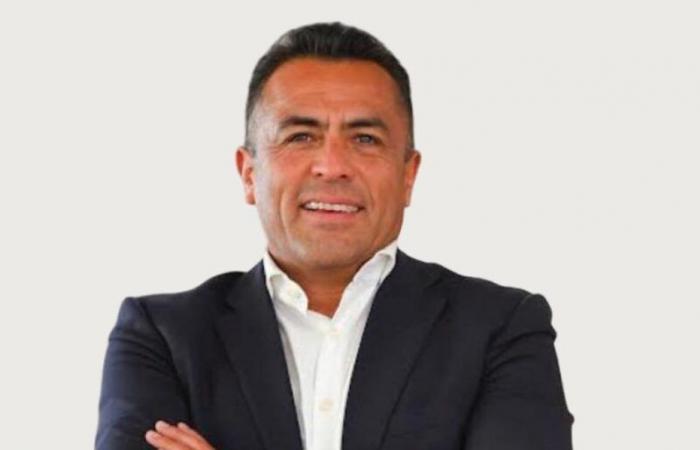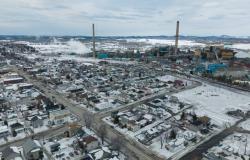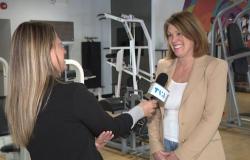Interview with Carlos Justiniani Ugarte, Country Manager Roche Diagnostic Morocco & North West Africa Network Lead
World leader in diagnostics, Roche Diagnostics is banking on innovation, strategic partnerships and digital transformation to modernize the Moroccan health system. Leveraging Morocco as a regional hub, the company deploys advanced diagnostic solutions and collaborative approaches to address public health challenges and strengthen access to care, while consolidating its presence in French-speaking Africa.
Roche Diagnostics has a strong international presence. What is your vision to strengthen the strategic positioning of Roche Diagnostics in Morocco?
Roche Diagnostics, a global leader in healthcare, is recognized for its reliability and expertise, with nearly 29 billion tests performed each year on its systems around the world. This position demonstrates our commitment to improving patient outcomes and meeting growing diagnostic needs.
In Morocco, digital transformation offers a unique opportunity to improve the efficiency of care, patient monitoring and access to diagnostic solutions. Our vision is to take advantage of these technological advances to consolidate our position and actively contribute to modernizing the health system. We implement digital solutions that optimize laboratory efficiency through structured data collection and analysis.
At the same time, we are developing decision support tools to support healthcare professionals throughout the patient journey, from prevention to disease monitoring. We co-build adapted solutions in collaboration with the various players in the sector, including patients, to respond to the specific challenges of the Moroccan health system. This commitment reflects our ambition to be a key player in the digital transformation of the sector while remaining true to our mission to improve patients’ lives through advanced and accessible diagnostic solutions.
What local or regional partnerships is Roche Diagnostics developing to create a sustainable ecosystem and accelerate access to diagnostic innovations?
Roche Diagnostics recognizes Morocco’s strategic role as a base for developing partnerships aimed at strengthening the health ecosystem. By collaborating with local players, we provide adapted diagnostic innovations and develop innovative projects that meet the growing needs of patients. A notable example is our partnership with Datapathology, a Moroccan start-up specializing in digital pathology.
This collaboration helps support hospitals, clinics and pathology centers in response to the increase in cancer cases and the lack of pathologists. Together, we deploy tele-pathology solutions that guarantee rapid and accurate diagnoses, thus reducing treatment delays.
At the same time, we are continuing our regional strategy by strengthening partnerships with local players and sharing adapted solutions to accelerate access to innovative diagnostic technologies, both in Morocco and in French-speaking Africa.
How do Roche Diagnostics solutions contribute to meeting public health challenges in Morocco, such as early detection of chronic diseases or cancer?
Morocco faces major public health challenges, with an increase in chronic diseases and around 63,000 new cases of cancer diagnosed each year. Roche Diagnostics plays a key role in providing solutions that enable early diagnostics, essential to improving clinical outcomes and optimizing healthcare system resources.
For example, HPV screening helps detect cervical cancer risks early, while high-sensitivity troponin tests speed up the treatment of heart attacks by reducing the time spent in the emergency room by 80 minutes. In oncology, our tools support multidisciplinary consultation meetings (RCP), facilitating informed decisions between specialists.
In addition, our innovative biomarkers for diseases such as Alzheimer’s allow a better understanding of the evolution of pathologies and help patients adapt their care. By offering accurate and rapid diagnostics, we contribute to improving the quality of care and reducing the burden of chronic diseases in Morocco.
Innovation is not limited to technologies, it also involves teams. How does Roche Diagnostics Maroc encourage the entrepreneurial spirit and autonomy among its employees to stimulate creativity and internal innovation?
At Roche Diagnostics Maroc, we firmly believe that innovation begins with our teams. We
we have established a dynamic entrepreneurial culture, where each employee is encouraged to manage their work as if it were their own business. This approach is based on agility, creativity and autonomy, allowing you to explore new ideas and innovate. We have implemented initiatives such as “Business Squads”, which decentralize decision-making, and “Healthy Leadership”, which promotes an authentic connection between leaders and teams, placing well-being at the heart of our concerns. .
To strengthen engagement, we launched the “Business Case Academy” and the Business Case Competition, allowing all employees to participate in the development of our strategic plans.
Finally, the “Fail Fast and Celebrate Failure” initiative values learning through mistakes, nurturing a culture of constructive feedback to stimulate innovation. These efforts aim to create an environment where the autonomy and creativity of employees become drivers of innovation.
Does Morocco have the necessary infrastructure to take full advantage of diagnostic innovations, such as AI or connected objects? If not, what solutions do you propose to fill these gaps?
Morocco is in the midst of transforming its health system, supported by initiatives such as the National Cancer Prevention and Control Plan 2020-2029, which aims to modernize infrastructure and develop digital health. Advances such as tele-pathology, tele-oncology and tele-radiology demonstrate this desire, but additional investments are necessary to maximize the integration of cutting-edge technologies.
Artificial intelligence (AI), connected objects and personalized medicine offer major opportunities. These innovations enable faster and more accurate diagnostics, remote patient monitoring and laboratory optimization. For example, AI can identify technical issues before they arise, while connected solutions simplify the daily management of chronic conditions like diabetes.
To fill the gaps, Roche offers a collaborative approach with public and private stakeholders. This includes strengthening digital infrastructure, training health professionals and developing solutions adapted to the Moroccan context. These efforts will allow Morocco to take full advantage of technological innovations and improve access to quality care for all.
Roche Diagnostics positions itself as a global partner by offering end-to-end solutions to its customers. Can you explain to us how these solutions meet the specific needs of health professionals in Morocco?
Roche Diagnostics offers end-to-end solutions covering the entire diagnostic journey, from sample collection to analysis of results. Our automated systems allow large volumes to be processed accurately, reducing delays and errors.
Tools like Navify centralize patient data, making it easier to make informed clinical decisions. We complement these offerings with strong technical and clinical support and continuing education programs for healthcare professionals to optimize the use of technologies. By responding to operational challenges, our solutions contribute to improving the quality of care while strengthening the efficiency of health actors in Morocco.
Morocco being a regional hub, how does Roche Diagnostics rely on the country to deploy its innovations in other markets in French-speaking Africa?
Morocco plays a strategic role for Roche Diagnostics as a regional hub for the North West Network of French-speaking Africa, thanks to its modern infrastructure and central geographical position. We collaborate with local partners to introduce diagnostic innovations and develop innovative projects from Morocco, particularly in countries such as Mali and Mauritania.
Morocco also serves as a platform for the exchange of good practices between health professionals in the region. For example, at the International Conference on In Vitro Fertilization held in Marrakech, we brought together our African teams and global collaborators to share key advances and strengthen our regional collaboration. By leveraging Morocco, we are maximizing our impact and accelerating access to diagnostic innovations across the region.
Rapid testing, especially in pandemics like COVID-19, has transformed diagnostics. What projects or innovations is Roche Diagnostics carrying out to develop this technology in Morocco?
Roche Diagnostics Maroc is committed to strengthening the country’s health ecosystem by offering innovative solutions adapted to growing needs, particularly in terms of rapid tests. The COVID-19 pandemic has revealed the importance of these tools for managing health crises, but our ambition is to go beyond by sustainably improving patient outcomes and alleviating pressure on the healthcare system.
With our new Near Patient Care products, particularly point-of-care, we are introducing solutions adapted to smaller environments, enabling rapid, efficient and patient-centered diagnostics. These technologies complement our portfolio in key areas such as clinical chemistry, immunochemistry and molecular biology.
Aware of the importance of Point of Care Testing (POCT) to speed up diagnoses and reduce waiting times, we are planning a rapid launch of this range in Morocco. These innovations aim to respond to public health challenges while guaranteeing accessible, quality care.
Bio express
With more than 20 years of experience at Roche, Carlos Justiniani embodies leadership that is both visionary and accessible, capable of combining ambition and humility. Today North West Africa Network Lead, he played a key role in the creation of Roche’s Diagnostics division in Morocco three years ago. Under his leadership, the organization adopted an agile and innovative culture, promoting the development of talents and a true entrepreneurial spirit.
Passionate about Roche’s mission, Carlos draws his motivation from the concrete impact of his work: saving lives and improving the quality of life of patients and their families. For him, these successes are not the fruit of individual efforts, but of a collective vision carried by committed and united teams.
Carlos stands out for his authentic and inspiring approach, balancing ambition and sensitivity. Although he strives for excellence, he remains deeply aware that real success lies in the positive change that he helps to bring about, in Morocco as well as on the entire African continent.
Sane Raqui






